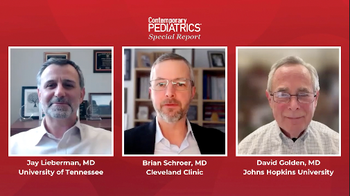
Palliative Care Can Improve Patient Care Most, Poll Finds
In an international poll conducted by BMJ to determine which area of health care would enable doctors to make the greatest difference to patients, palliative care for non-malignant disease received the most votes, the BMJ Group announced at the International Forum on Quality and Safety in Health Care in Paris this week.
MONDAY, April 28 (HealthDay News) -- In an international poll conducted by BMJ to determine which area of health care would enable doctors to make the greatest difference to patients, palliative care for non-malignant disease received the most votes, the BMJ Group announced at the International Forum on Quality and Safety in Health Care in Paris this week.
Over 4,000 people voted on six topics with each topic supported by articles arguing its merits. Palliative care for all at the end of life garnered 38 percent of the votes. The second choice was combating drug-resistant infections in poor countries, with 22 percent of the votes. The other four topics were better care for the elderly with multiple health problems, improving chronic pain management, reducing excessive drinking in young women and helping reduce adverse drug reactions in the elderly.
The winning article looked at the lessons that can be learned from palliative care for cancer patients that can be adapted to care for those with fatal non-malignant conditions such as heart disease and dementia.
"I am delighted that 'palliative care beyond cancer' came out top," said Scott A. Murray, of the University of Edinburgh in the U.K., co-author of one of the two winning articles. "Good end-of-life care for all rather than for only some is surely a worthy aim of a civilized society. It is high time to embrace this challenge and to work out new ways to care for all, using current research."
Copyright © 2008
Newsletter
Access practical, evidence-based guidance to support better care for our youngest patients. Join our email list for the latest clinical updates.



